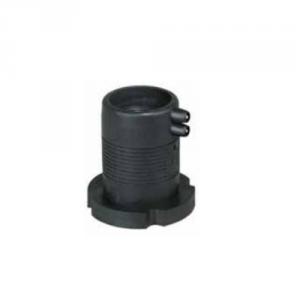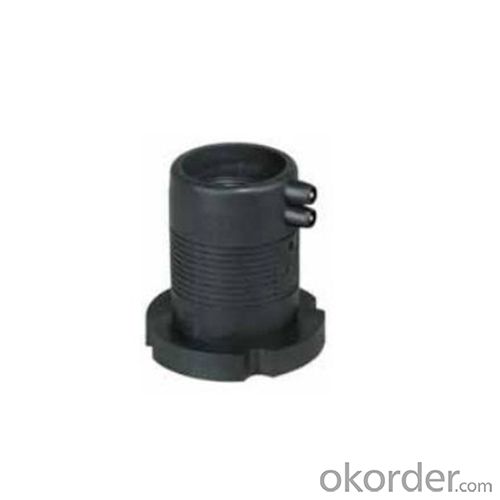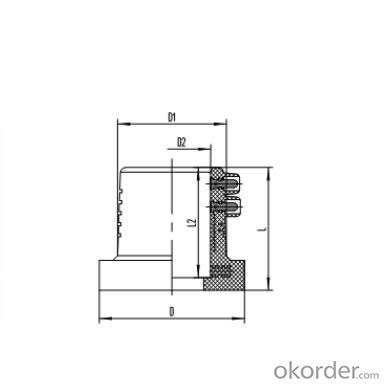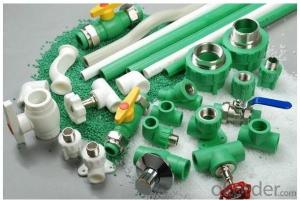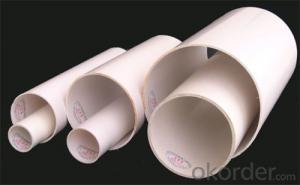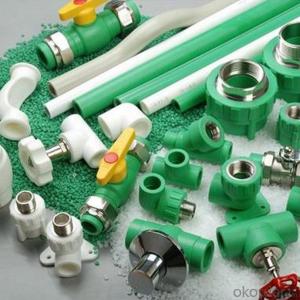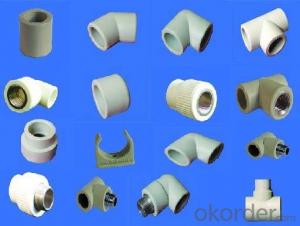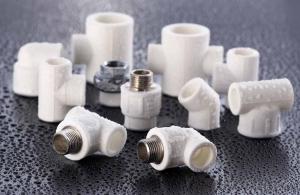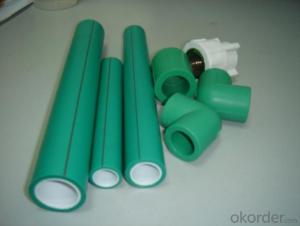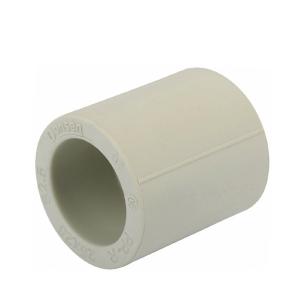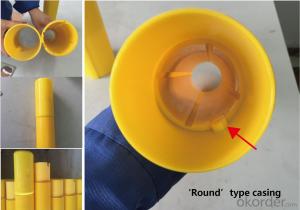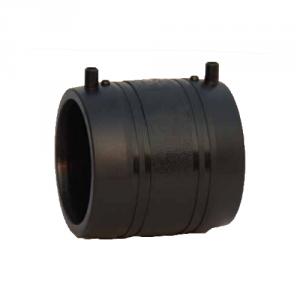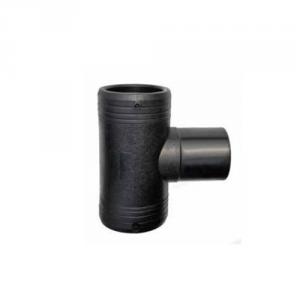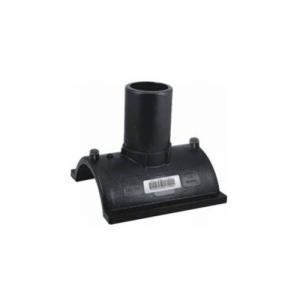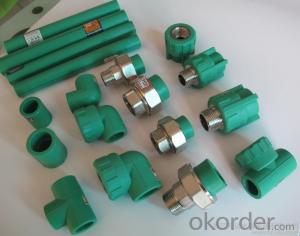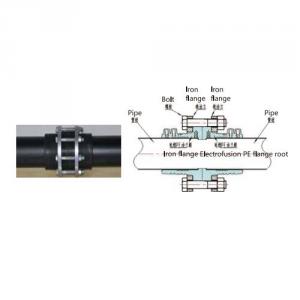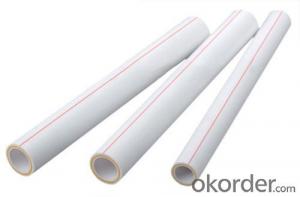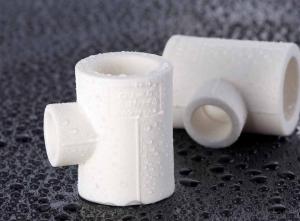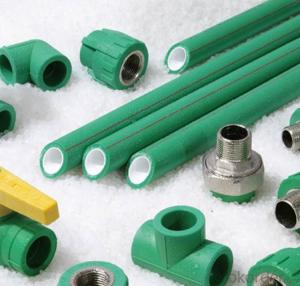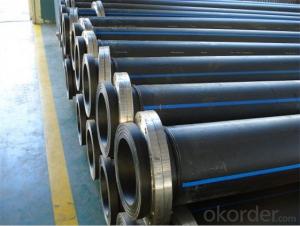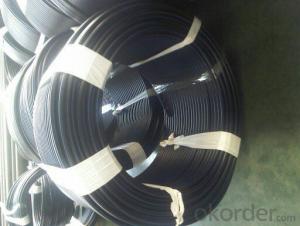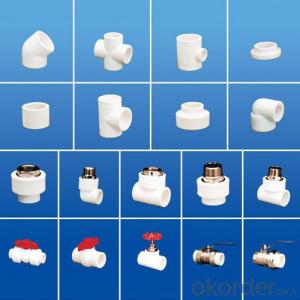Press Fit Plastic Pipe Electrofusion Flange PE Pipe Fittings EN12201-3
- Loading Port:
- China main port
- Payment Terms:
- TT or LC
- Min Order Qty:
- 100 m
- Supply Capability:
- 10000 m/month
OKorder Service Pledge
OKorder Financial Service
You Might Also Like
Electrofusion Flange PE Pipe Fittings EN12201-3

Pressure grade:0.8MPa-1.6MPa
Size: DN50MM-DN800MM
Specification:
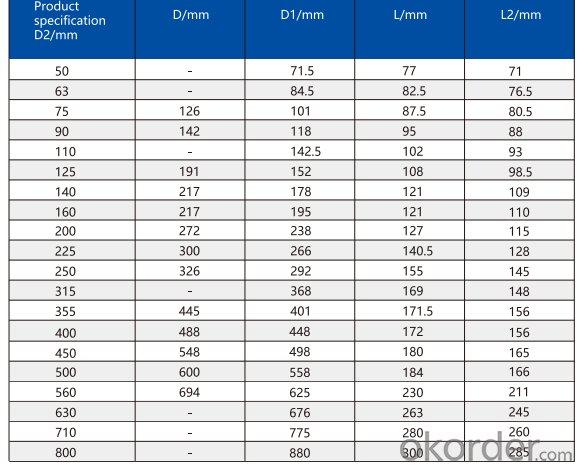
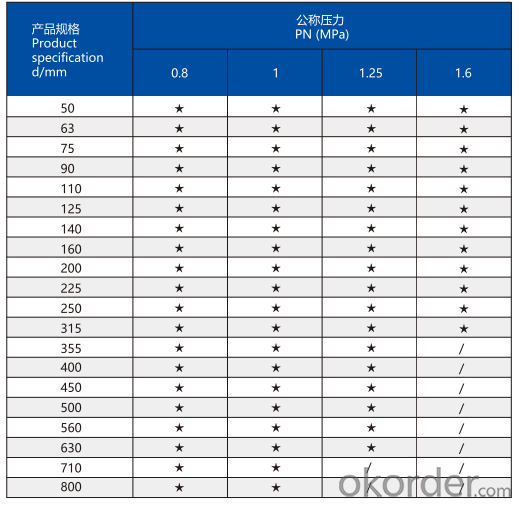
We own three industry bases for manufacturing pipes, fittings and new materials, including the biggest production line of steel wire reinforced PE composite pipe in the world, and top advanced PE pipe production line.
We get long term cooperation with leading material suppliers in the world and professionally provide the pipeline system solutions of matched products and technical cases by the whole industry chain from materials R&D to pipeline engineering installation.
- Q: Are plastic pipe fittings suitable for marine applications?
- Yes, plastic pipe fittings can be suitable for marine applications. They are commonly used in various marine systems, such as plumbing, sewage, and cooling systems, due to their corrosion resistance, lightweight nature, and durability. Additionally, plastic fittings are often more cost-effective compared to their metal counterparts and can withstand the harsh conditions and corrosive environment found in marine applications.
- Q: Can plastic pipe fittings be used for mining operations?
- Yes, plastic pipe fittings can be used for mining operations. They are often preferred due to their corrosion resistance, light weight, and durability. Plastic pipe fittings are commonly used for conveying water, chemicals, and other fluids in mining applications.
- Q: What types of plastic pipe fittings are available in the market?
- There are several types of plastic pipe fittings available in the market, including but not limited to elbows, tees, couplings, adapters, unions, valves, and connectors. These fittings are designed to connect, redirect, or control the flow of fluids in plumbing and piping systems.
- Q: Can plastic pipe fittings be used for fuel transfer systems?
- No, plastic pipe fittings should not be used for fuel transfer systems. Plastic is not compatible with fuel and can degrade, leak, or cause a potential fire hazard. It is recommended to use fittings made from materials specifically designed for fuel transfer, such as metal or specialized fuel-resistant plastics.
- Q: Are plastic pipe fittings suitable for drinking water applications?
- Yes, plastic pipe fittings are suitable for drinking water applications. They are commonly used in plumbing systems for residential, commercial, and industrial settings. Plastic pipe fittings are durable, cost-effective, and resistant to corrosion, making them a reliable choice for delivering safe drinking water. Additionally, they are easy to install and maintain, which adds to their suitability for drinking water applications.
- Q: Do plastic pipe fittings require any special grounding or bonding?
- No, plastic pipe fittings do not require any special grounding or bonding as they are non-conductive materials.
- Q: Are plastic pipe fittings suitable for chemical transfer applications?
- Yes, plastic pipe fittings can be suitable for chemical transfer applications. However, it is important to select the appropriate type of plastic material that is resistant to the specific chemicals being transferred. This will ensure the fittings can withstand the chemical exposure and prevent any leaks or potential contamination. Additionally, proper installation and regular maintenance are crucial to ensure the longevity and effectiveness of plastic pipe fittings in chemical transfer applications.
- Q: How long do plastic pipe fittings typically last?
- Plastic pipe fittings typically have a lifespan of around 50 to 100 years, depending on factors such as the type of plastic used, quality of installation, and exposure to environmental conditions.
- Q: How can the PPR pipe be connected with the metal tube?
- In the PP-R piping system, the transition between the metal pipe and the plastic pipe needs a transition piece, the transition piece and the PP-R pipe are connected by hot melt, and the transition part is connected with the metal pipe through a screw thread.
- Q: Are plastic pipe fittings suitable for use in food processing plants?
- No, plastic pipe fittings are generally not suitable for use in food processing plants due to the risk of contamination and potential chemical leaching. Stainless steel or other approved materials are typically preferred for food processing applications.
Send your message to us
Press Fit Plastic Pipe Electrofusion Flange PE Pipe Fittings EN12201-3
- Loading Port:
- China main port
- Payment Terms:
- TT or LC
- Min Order Qty:
- 100 m
- Supply Capability:
- 10000 m/month
OKorder Service Pledge
OKorder Financial Service
Similar products
Hot products
Hot Searches
Related keywords
